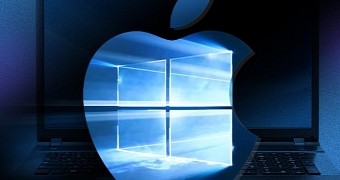One of the most surprising news that Microsoft unveiled at the Build developer conference last week was that Apple decided to bring iTunes to the Windows Store.
Basically, a Store version of iTunes makes it possible for iPhone users to manage their smartphones without having to download the desktop app, even on devices running Windows 10 S, which by default is restricted to universal apps published in the Windows Store.
And while Apple itself bringing an app in the Windows Store is already a big win for Microsoft, the simple decision of a company the size of the Cupertino-based iPhone maker to support Windows 10 has a series of other positive effects on Microsoft’s operating system.
Following in Apple’s footsteps
It’s not a secret that Microsoft suffered from an app problem with its modern operating system and this started in 2012 when the company launched Windows 8 and Windows RT. The latter version turned out to be just a flop, partially because of the lack of apps, as it was restricted to Windows Store apps just like Windows 10 S.
Microsoft struggled to address this problem with a series of tools supposed to make it easier for developers to port apps to Windows 10, but none actually impressed in a substantial manner.
On the other hand, Microsoft is trying a different strategy at this point and it might actually work. By convincing Apple to bring iTunes to the Windows Store, Microsoft is showing the developer world that Windows 10 is such a compelling product that it even caught the attention of one of its biggest rivals.
In other words, convincing more high-profile companies to support Windows 10 could lead to smaller developers following in their footsteps, and Apple, as one of the most valued firms in the entire world, is definitely the right place to start.
As a result, more and more developers should at least check out the universal app concept in the coming months only because Apple did it, so expect more news on this front anytime soon.
After Apple, the next company that comes to everyone’s mind is Google, though this time Microsoft might have a much harder job to do. Google Chrome cannot be published in the Windows Store unless it’s redeveloped to use Microsoft’s own browser engine, while apps like Google Maps have already been replaced with Windows alternatives.
It goes without saying that Microsoft should go forward with this strategy of working with high-profile companies on bringing apps to the Windows Store, and hopefully more big names would join the universal app push soon.

 14 DAY TRIAL //
14 DAY TRIAL //